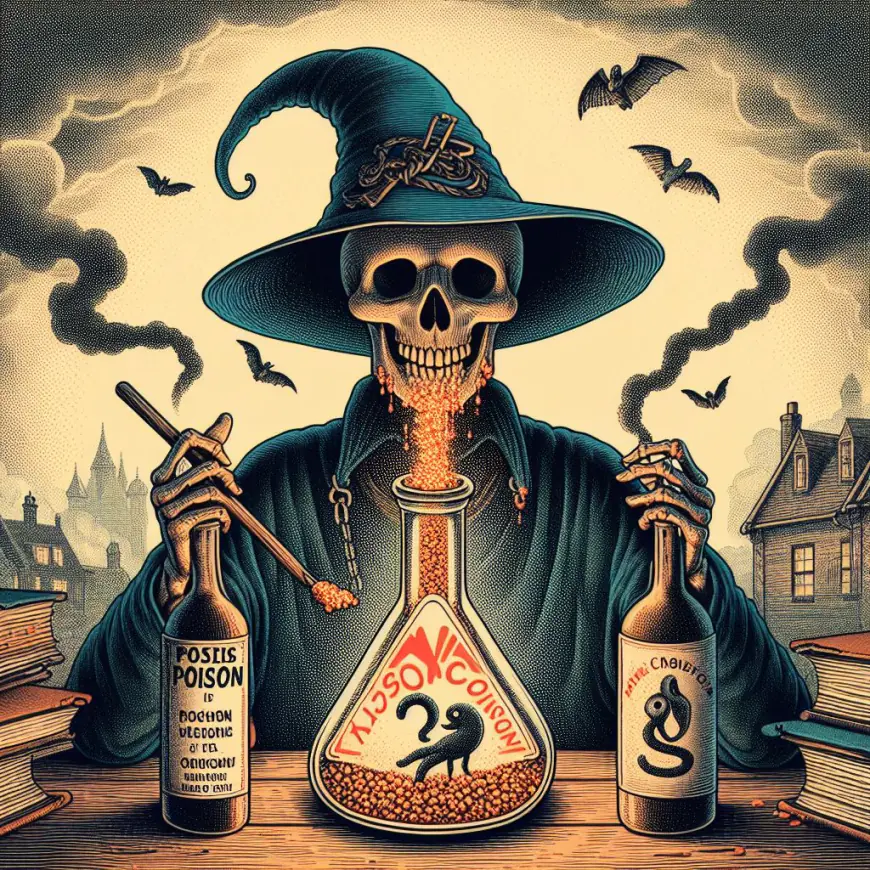If The Poison Has Expired, Will Its Toxicity Increase Or Decrease?
Expired Poisons: Myths, Truths, and the Lingering Venom

The Intriguing World of Expired Poisons: Debunking Myths and Unveiling Truths
Introduction
When it comes to poisons, our minds conjure up images of clandestine assassinations, mysterious potions, and malevolent substances. But what happens when these toxic compounds reach their expiration date? Does their potency wane, or do they become even more treacherous? In this article, we delve into the fascinating realm of expired poisons, separating fact from fiction and shedding light on the science behind their shelf life.
Understanding Poison Expiration Dates
Before we explore the impact of expiration dates on poisons, let’s clarify what those dates actually signify. Unlike a carton of milk or a loaf of bread, poisons don’t come with a “best by” label. Instead, the expiration date serves a different purpose—one that is often misunderstood.
-
The Legal Guarantee: Commercial chemical products, including poisons, bear an expiration date for legal reasons. Beyond this date, manufacturers no longer guarantee the product’s efficacy, safety, or stability. It’s a contractual assurance rather than a biological countdown.
-
Chemical Degradation: Poisons, like any other chemical compounds, can degrade over time. Exposure to air, moisture, light, and temperature fluctuations can alter their molecular structures. However, this process isn’t uniform across all poisons.
Types of Poisons and Their Shelf Lives
1. Protein-Based Poisons
These delicate compounds—think tetrodotoxin, ricin, and botulinum toxin—fall into the protein category. Their vulnerability lies in their intricate structures. Over time, proteins can denature or break down, rendering them less potent or even harmless. Imagine a spider’s web unraveling thread by thread. Similarly, these poisons lose their venomous bite as their protein chains disintegrate.
2. Organic Molecules
Many poisons consist of small organic molecules. These include nicotine, nerve agents (such as sarin and VX), and other chemical nasties. Their shelf lives depend on various factors:
-
Oxidation: Exposure to oxygen can oxidize these molecules, altering their toxicity. Imagine rust forming on a metal surface—the same principle applies here.
-
Hydrolysis: Water molecules can cleave the bonds within organic poisons. The result? A less potent brew.
-
UV Radiation: Sunlight’s ultraviolet rays can wreak havoc on these compounds, breaking them down into less harmful fragments.
3. Metal Poisons
Metals like lead, mercury, and cadmium are toxic in various forms. Elemental lead, for instance, is hazardous, but its inorganic and organic compounds can be equally deadly. The toxicity of these metals varies depending on their chemical state. For instance:
- Elemental Mercury: The shiny liquid in old thermometers is toxic, but its organic form—methylmercury—poses a more insidious threat.
The Myth of Instant Ineffectiveness
Contrary to popular belief, poisons don’t suddenly lose their potency at the stroke of midnight on their expiration date. Instead:
-
Statistical Average: The date represents a statistical average. Some poisons may degrade slightly, while others remain largely unaffected.
-
Species-Specific Toxicity: An expired poison might still harm one species while sparing another. Imagine a weakened venom that no longer paralyzes its usual prey but wreaks havoc on unsuspecting insects.
Conclusion: The Poisonous Paradox
In the enigmatic dance between time and toxicity, poisons defy simplicity. They could become more toxic, less potent, or transform into entirely new compounds. So, next time you encounter an expired poison, remember that it’s not a ticking time bomb. Instead, it’s a chemical puzzle waiting to reveal its secrets.
In summary, the expiration date isn’t a death knell for poisons—it’s merely a milestone in their mysterious journey. Handle them with care, whether they’re fresh or past their prime. And always remember: Poisons are not the opposite of food; their expiration isn’t a license to experiment!
So, the next time you peer into that ominous vial, consider the paradox: Expired poisons—still potent, yet forever evolving. ????️????????
Disclaimer: This article is for informational purposes only. Consult a professional toxicologist or poison control center for specific advice regarding poisons.
What's Your Reaction?








































